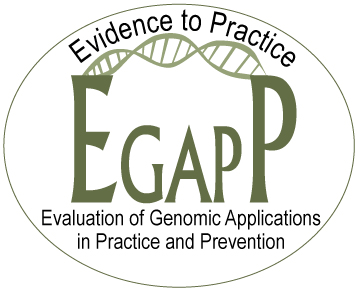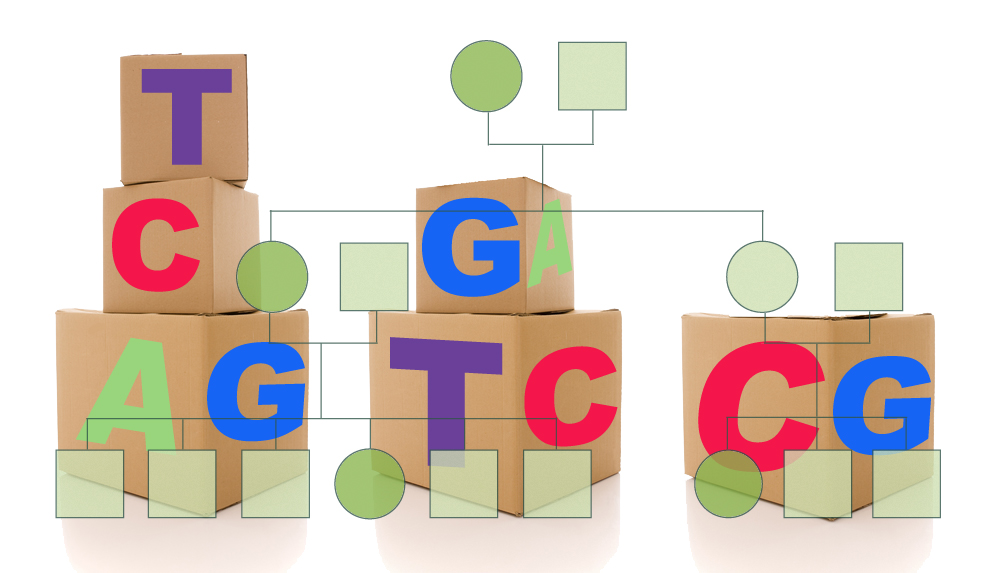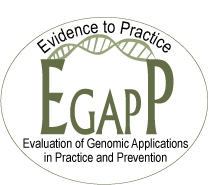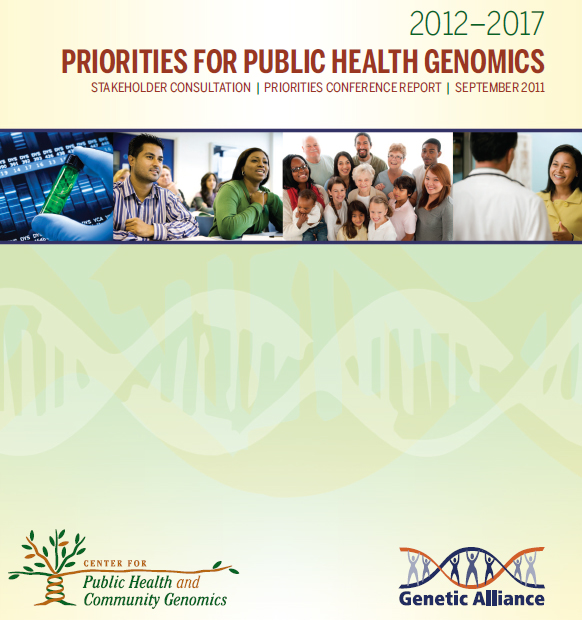Search Results
10 results for colorectal cancer
Accelerating the Development of Evidence Reviews and Recommendations in Genomic Medicine

The independent EGAPP working group (EWG) held its 26th meeting on February 11-12, 2013 at the CDC campus in Atlanta. Highlights included: Three EWG recommendation statements on the validity and utility of genetic tests are pending publication on: KRAS, BRAF and other markers involved in EGFR signaling, which are used to inform choice of therapies for
Posted on byHow Can We Use Genetic Testing in Population Screening for Common Diseases?

Scientific and implementation challenges Population screening for disease is a concept that has been around for many decades. Its main purpose is early detection and treatment of asymptomatic disease, or risk assessment and prevention of future disease, in order to improve health outcomes in individuals and populations. Examples include mammography in breast cancer screening and
Posted on by 1 CommentEvidence Matters in Genomic Medicine—Round 3: Integrating Family Health History into Clinical Preventive Services

A new podcast from the CDC Expert Commentary Series on Medscape—Family Health History: Use It to Inform Preventive Services for Your Patients— describes how family health history can inform the delivery of preventive health services. The podcast presents three case studies based on recommendations of the US Preventive Services Task Force (USPSTF): screening for lipid
Posted on byMore Workings of an Evidence-Based Genomic Panel: Modernizing the Evidence Review Process

The independent EGAPP working group (EWG) held its 25th meeting on September 10-11, 2012 at the CDC campus in Atlanta. Highlights included: Three EWG recommendation statements on the validity and utility of genetic tests are pending publication on: KRAS, BRAF and other markers involved in EGFR signaling, which are used to inform choice of therapies for
Posted on byWhat Gets Measured Gets Done: Genomics, Surveillance Indicators and Healthy People 2020

Public health surveillance indicators, such as those developed for the Healthy People initiative are useful for monitoring the development of genomic medicine in the United States. For several decades, Healthy People has established health benchmarks that are considered important metrics for tracking progress in health and healthcare in the United States.
Posted on byPeeling the Pyramid, Scaling the Onion—How to Implement Genomic Medicine

In spite of the promise of genomics and related technologies for a new era of precision healthcare and disease prevention, only a handful of genomic tests and applications have been recommended for use in clinical practice. Nevertheless, implementation of even the few recommended genomic tests is lagging. For example, implementing the 2005 USPSTF recommendation on genetic
Posted on byWorkings of an Evidence-Based Genomic Panel

Synopsis of the 24th Meeting of the Evaluation of Genomic Applications in Practice and Prevention (EGAPP) Working Group The EGAPP working group (EWG) has held 24 meetings in the 7 years since they were first convened; the latest EGAPP meeting was May 7-8, 2012 on the campus of CDC in Atlanta. Since it is
Posted on byEvidence Matters in Genomic Medicine

A new IOM report makes recommendations that aim to ensure that progress in omics-based test development is grounded in sound scientific evidence and is reproducible, resulting in improved health care and continued public trust in research. Another new IOM roundtable workshop report discussed the differences in evidence required for clinical use, regulatory oversight, guideline inclusion, coverage,
Posted on by 1 CommentMaking Universal Screening for Lynch Syndrome a Reality: The Lynch Syndrome Screening Network

Every day, about 400 people in the United States are diagnosed with colorectal cancer. Approximately twelve of them have Lynch syndrome, a hereditary condition that increases the risk of colorectal cancer and other cancers. Identifying people with Lynch syndrome could have substantial health benefits for them, their families, and communities.
Posted on by 1 CommentBeyond Base Pairs to Bedside: A Community Consultation on Closing the Gap between Genomic Discoveries and the Public’s Health

In June 2011, the CDC Office of Public Health Genomics launched a community wide consultation process to develop priorities for the field of public health genomics in the next 5 years. This process was initiated as part of strategic visioning for integrating the emerging tools of genomics into practice and assuring the success of these
Posted on by

